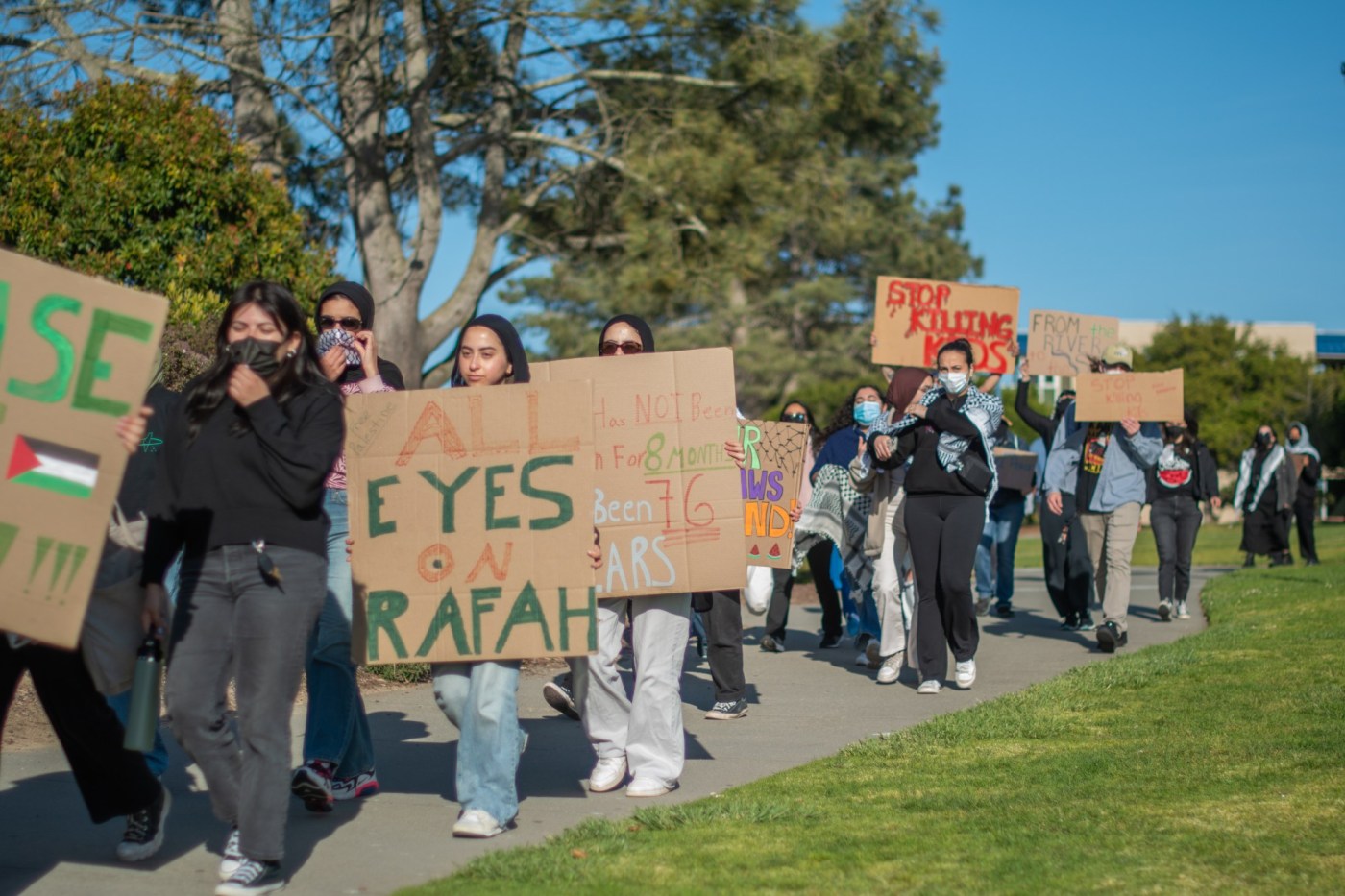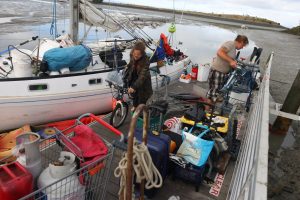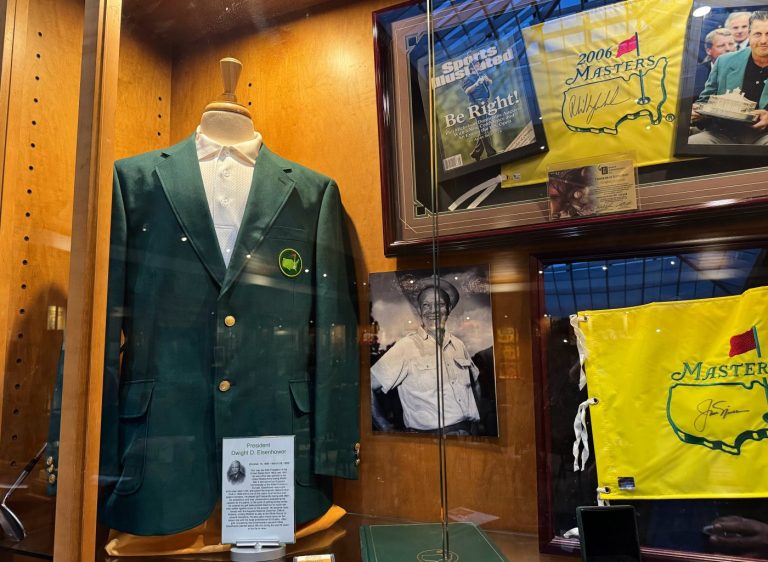SEASIDE – Protests will now be more closely monitored and encampments banned at all 23 campuses in the California State University System.
Following a rise in protests and encampments last spring in response to the Israel-Hamas war, the CSU has updated its Time, Place and Manner policy, which outlines what falls under “freedom of expression” on campuses. The updated policy emphasizes that the use of face coverings to conceal one’s identity or refusing to identify oneself to campus officials is barred and advises against actions that “impede or restrict the free movement of any person” blocks, streets, pathways or parking lots.
“The California State University is committed to free expression as an essential component of its educational mission and supports the right of all members of its university communities to protest and demonstrate lawfully,” said CSU Spokeswoman Hazel Kelly in a written statement.
“The CSU also has an obligation to ensure that all community members can access university property and programs, without disruption, in accordance with the highest standards of institutional integrity,” she said. “The purpose of the CSU’s systemwide Time, Place and Manner policy is to facilitate academic freedom, freedom of expression and the CSU’s educational mission while protecting the right to learn and work in a safe environment.”
Students and faculty at Cal State Monterey Bay did not participate in encampments on campus grounds, but did host multiple Pro-Palestine protests and marches. During a solidarity rally in May led by the Abolitionist & Decolonial Learning Collective, the group had seven demands including the university “publicly call for a ceasefire and end to the occupation of Palestine” and “divestment from companies and corporations complicit in the occupation.”
Encampments and overnight demonstrations are prohibited by the CSU policy and those who attempt to start or participate in an encampment may be disciplined or sanctioned, according to the Chancellor’s Office.
“Campus presidents and their designated officials will enforce this prohibition and take appropriate steps to stop encampments, including giving clear notice to those in violation that they must discontinue their encampment activities immediately,” said the Chancellor’s Office in a written statement.
“This prohibition is in place to provide a safe and welcoming environment for all university community members. Encampments are disruptive and can cause a hostile environment for some community members.”
The University of California also updated its own policies recently, banning encampments and anything that restricts movement around campuses.
The CSU’s policy also designated each campus to specify its own regulations. CSUMB’s policy was last updated Aug. 16 and went into effect immediately.
The policy states access and use of university property must be scheduled and reserved in advance. This includes public property such as the Main Quad, the areas outside of the library (which must be reserved ahead of time) and paved pedestrian walkways. These areas are “open” for activity from 8 a.m. to 10 p.m.
Related Articles
State finds UC Santa Cruz and 5 other colleges underreported campus crimes
Two new laws crack down on sexual harassment at California universities
Broken trust: Cal State is mending how it handles sexual discrimination cases
Cal Poly Humboldt President Tom Jackson Jr. stepping down
‘Strong possibility of violence’: Documents shed some light on Cal Poly Humboldt protests, police response
Posters, signs and banners must also be approved and have written permission from the appropriate university official before being placed on bulletin boards for a maximum of 30 days. All signage must also clearly state the person or organization responsible for it, in order to “aid the university in maintaining an uncluttered and attractive campus.” Signage without this contact information will be removed.
The existing policy still applies to union-represented employees until unions complete bargaining. The new systemwide policy will apply to employees once bargaining concludes.
In an email sent to CSU students Aug. 20, this idea was reiterated, saying “we invite and actively encourage you to learn, grow and make your voice heard on issues that matter to you. Freedom of expression, however, is not an absolute right. It coexists with other rights, the CSU educational mission, and the need for public order and safety.” The email was signed by Chancellor Mildred Garcia and the system’s 23 presidents.
To learn more about CSUMB’s updated Time, Place and Manner policy, visit https://csumb.edu/policy/time-place-and-manner-policy-interim/.












